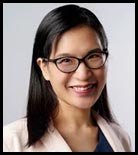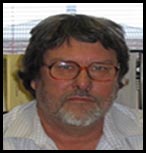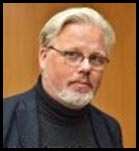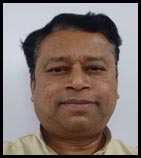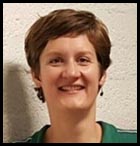 |
ISCApad #276 |
| Tuesday, June 15, 2021 by Chris Wellekens |
2 ISCA News
| 2-1 | Message from ISCA President Professor John Hansen June 10, 2021
Dear ISCA members:
Welcome to the next installment of the ISCApad for June 2021. In this monthly message to all our members, I highlight recent activities for ISCA, Interspeech events, upcoming opportunities to contribute/serve/participate in ISCA, and the announcement of ISCA Board for 2021. Please see all the announcements in this issue for more details!
The world still addresses COVID19 Pandemic, but progress is being made with multiple vaccines that are making an impact. We wish all ISCA Members and Friends to continue to be safe and cautious, with the hope that better days are ahead. Please believe in the science and do all you can to get your vaccine shot as well as encourage others to get vaccinated.
ISCA Board – Elections for 2021: Many thanks to all ISCA Members who participated in both the Nomination process, and Voting process for our recent election to the ISCA Board! We had a total of 698 ISCA members voting for ISCA BOARD election this year. We had eight positions open this year, and those receiving the largest number of votes from the ISCA Membership voting in rank order from one to eight, were approved and certified by the ISCA Board. ISCA maintains a rule that no more than three members can serve at the same time per country, to ensure member diversity worldwide. However, this rule did not need to be applied this year. Those nominated were all extremely well qualified, and we sincerely thank all who were nominated and committed to volunteering their time and expertise to serve our community. We will have another election in 2 years for the next portion of the ISCA Board who will be completing their service. I am pleased to recognize the following 8 individuals who were elected to the ISCA Board for 2021-2025 (in alphabetical order). Four have been re-elected for a second term on the ISCA Board (noted as returning Board member).
Nancy Chen, Singapore (newly elected to ISCA Board)
Mariapaola D'Imperio, USA (newly elected to ISCA Board)
Phil Green, UK (re-elected to ISCA Board, 2nd term) Joakim Gustafson, Sweden (newly elected to ISCA Board)
Tatsuya Kawahara, Japan
S R Mahadeva Prasanna, India (newly elected to ISCA Board)
Bhuvana Ramabhadran, USA (re-elected to ISCA Board, 2nd term)
Odette Scharenborg, Netherlands (re-elected to ISCA Board, 2nd term)
Congratulations to all those elected to the ISCA Board this year! We look forward to your contributions and impact for our society.
INTERSPEECH-2021 (Hybrid Virtual/In-Person): [http://www.interspeech2021.org/] Brno, Czech Republic (Aug. 30 – Sept. 3, 2021)
INTERSPEECH-2021 (IS-21) Committee along with the ISCA Board have worked extensively over the last two months for all the paper submissions. The INTERSPEECH-2021 Technical Committee has worked extensively to ensure the highest technical quality for this Interspeech Conf. This year, I was asked to help in one of the technical Areas due to the significant increase in the number of papers in that area. While I had overseen Interspeech-2002 years ago, it was remarkable to witness firsthand how efficient and well organized the ENTIRE IS-21 Technical Committee took to systematically addressing all details of the review process including (Area Chairs): (i) validity of all uploaded paper PDFs, (ii) ensuring no conflicts of interest as Area Chair or Reviewer, (ii) assigning reviewers, (iii) following up on late/non-responding reviewers, (iv) assigning last-minute flash reviewers to make up for missing reviews, (v) reading every review and drafting “meta-reviews”, (vi) Area-Chairs performing cross-Meta-Reviews to ensure two Area Chairs reviewed and agreed/arrived at a consensus on each paper, (vii) Area Chairs within each AREA collectively reviewing again all papers which had potential disagreements in reviews and arriving at a unanimous decision for those papers in question, and (viii) transitioning all these decisions to the TPC for final communications to the authors. As authors, we may not always agree with all the reviewer comments or even the decision if a paper was turned down, but rest assure that every paper received extensive oversight in arriving at a final accept/reject decision for each submission. A sincere word of thanks to all Reviewers, Area Chairs, and the entire IS-2021 Technical Program Committee for completing this process effectively and on time. For this IS-21, a total of 1985 papers were received which went out for review, and a total of 966 were accepted for presentation. Below are some important upcoming dates for INTERSPEECH-2021:
for Unified virtual sessions. Deadline of requests for Virtual gatherings.
Currently, INTERSPEECH-2021 is still on track to be a Hybrid, with the final decision to be “hybrid vs. fully virtual” will be made by June 20, 2021. Full time schedules with time zones will be published on the INTERSPEECH-2021 website.
INTERSPEECH-2021 and the ISCA ETHICS Committee: While the IS-2021 Paper Review process has taken place these past two months, it is also important to raise the topic of how ISCA ensures the quality and technical integrity of our publications. All ISCA Members are reminded that the ISCA Board has established and maintains a strict “ISCA Code of Ethics for Authors”, which is located online (https://www.isca-speech.org/iscaweb/index.php/about-isca?id=279). All authors were required to confirm that their manuscripts submitted to IS-2021 had not been published or submitted elsewhere (e.g., self-plagiarism). Also, relevant works published by the authors which may have been used to build on the current work must be cited, and where appropriate, noted on how the current submission expands or addresses new ideas, algorithms, etc. from past work. This is to ensure that no papers submitted for consideration in ISCA sponsored events (INTERSPEECH or any ISCA sponsored/co-sponsored workshop, etc.) has been submitted or previously published. In addition, that all PDFs of paper submissions are to be held in confidence, and not shared either during or after the review process is completed. This includes all paper manuscripts which are either accepted, as well as those rejected (since they remain the intellectual property of the submitting authors). This past month, the IS-2021 Technical Program Committee identified 23 paper submissions which were viewed as having some potential ethics issues. These were referred to the ISCA ETHICS Committee, who performed individual reviews on each submission with questions on ethics. The ISCA Ethics Committee established and apply the following three levels of assessment:
- Level 0: No Violation - there are elements which caused concern but none rose to the level needed to continue or notify the authors. - Level 1: Violation with a Warning - elements did rise to a violation of ethics rules. The level of deliberate intent might be mild to moderate, so an official sanction was not applied but authors are notified that they did violate rules. - Level 2: Serious Violation - where it has been determined that the authors deliberately violated ISCA Code of Ethics in publication. In these cases, papers are automatically rejected if in the review process, or officially removed and not included in the official ISCA published conferences, workshops, etc. It is also the case that if authors who are determined to have violated publication ethics rules, either must remove their names from other accepted papers in that meeting, or those papers would also be removed from the program/publication (e.g., so as to not penalize co-authors from other papers who were not involved in a violation case, these secondary papers could still appear if the sanctioned authors are removed). In this case, an official sanction period is applied to those authors deemed responsible with a ban on both/either not being able to publish in ISCA events, and/or attend/participate in ISCA Events. Unfortunately, in this IS-2021, there were several paper submissions which did rise to LEVEL-1 or LEVEL-2 ethics violations, and these authors are being notified. Again, an extensive amount of time is committed by those serving on the ISCA ETHICS committee to carefully assess these cases, including constant communications with the INTERSPEECH Tech. Program Committee (TPC), so that the ISCA ETHICS Committee can reach a unanimous decision for each case. We do this to ensure the ethical dissemination of ideas and results for our community. I would ask all ISCA members to please review the “ISCA Code of Ethics for Authors” when submitting to ensure we all are following the rules.
Closing: We hope all of you are staying safe, and continue to push forward and contribute to both the science and technology advancements in Speech Communication. We look forward to seeing you all virtually or in person at ISCA INTERSPEECH-2021 this year in Brno, Czech Republic.
As always, we welcome feedback and input from the ISCA community – if you have suggestions for our society or want to be involved, please let us know!
Until next month, stay safe and stay connected to our community!
John H.L. Hansen (ISCA President)
| ||
| 2-2 | ISCA social networks We encourage all members tokeep contact with ISCA via our social nets. Also you will bde kept informed about all events on our website. This is particularly important in this time where due to the coronavirus, many modifications may be brought to the conference.
ISCA Facebook : https://www.facebook.com/iscaspeech/ ISCA Twitter : https://twitter.com/ISCAFOX ISCA SAC Student Facebook : https://www.facebook.com/groups/98794207409/ website : www.isca-speech.org
| ||
| 2-3 | ISCA Distinguished Lecturer for 2021-2022 ISCA Distinguished Lecturer for 2021-2022
| ||
| 2-4 | Code-of-Conduct for Conference and Workshop Attendees Code-of-Conduct for Conference and Workshop Attendees
| ||
| 2-5 | Women in Speech Research
| ||
| 2-6 | Code-of-Ethics for Authors Code-of-Ethics for Authors
| ||
| 2-7 | Publications and Videos of Speech Prosody 2020 The papers are already publicly available, at https://www.isca-speech.org/archive/SpeechProsody_2020/ . To also see the videos, you can register for the conference, for only 4000 Yen, at https://www.gavo.t.u-tokyo.ac.jp/sp2020_registration/vp/ .
| ||
| 2-8 | International virtual seminars: call for speakers For ISCA Fellows, Now's the time of year that seminar programmes get fixed up.. please direct the attention of whoever organises your seminars to the ISCA INTERNATIONAL VIRTUAL SEMINARS scheme (introduction below). There is now a good choice of speakers: see https://www.isca-speech.org/iscaweb/index.php/distinguished-lecturers/online-seminars Phil Green ****************************************************************************************** ISCA INTERNATIONAL VIRTUAL SEMINARS A seminar programme is an important part of the life of a research lab, especially for its research students, but it's difficult for scientists to travel to give talks at the moment. However, presentations may be given on line and, paradoxically, it may thus be possible for labs to engage international speakers who they wouldn't normally be able to afford. We already have the distinguished lecturer programme as a starting point, and the DLs have been asked to consider lecturing remotely, with interaction. If you are interested in joining this scheme as a speaker, please reply to this mail, with the brief details above.
-- ************************ Professor Phil Green SpandH Computer Science University of Sheffield ************************
|

